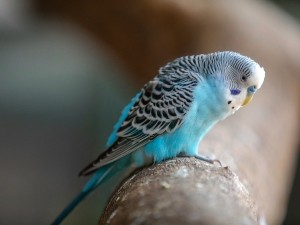
The digestive process may be hidden from the naked eye but this process is very important for all living organisms, baby cockatiels included
This article is a look into why your baby cockatiel is not digesting.
Table of Contents
Baby cockatiel not digesting:
If your bird is eating normally, but you realize that digestion is not happening as it should, you’d be right to be worried, these birds poop quite a lot, and a bird keeping this poop in is alarming
Here is why this may be happening:
Formula/bird too cold:
One of the simplest, and the most common reason why your bird can’t digest food is that the bird’s formula is too cold or the bird itself is too cold.
We as humans may be able to eat and digest cold foods but baby cockatiels can’t do this so well.
The recommended temperature instructions on your bird’s food packaging are there to not only keep owners from making the bird’s food too hot, it is also there to keep owners from making the bird’s food too cold as well
The recommended temperature for the formula to be is 38-41oC (100 -105oF). Giving the bird formula at this temperature will be best for digestion
If the bird doesn’t flat-out refuse to eat cold formula and actually eats it, then the bird’s body will digest the formula very slowly.
A bird that is very cold will also digest food very slowly.
What to do:
The solution to this issue is simply giving the baby cockatiel a formula which has been warmed up to the recommended temperature set by the manufacturers.
Once you’ve given this formula to your bird check to see if the bird is pooping, these birds usually release poop 4-6 hours after eating.
Bacterial infection:
Another more dangerous reason why your bird may be having issues digesting may be because the bird has a bacterial infection.
Bacterial infections are quite common in hand-reared birds. If this is what is going wrong with your birds then the bacteria may slow or stop the movement of food in your bird’s digestive tract.
The slow or no digestion may be the only sign that you see of the bird suffering from a bacterial infection but treatment is needed as soon as you notice it.
Your baby cockatiels health can decline quite quickly if your bird is suffering from a bacterial infection.
What to do:
Taking your baby cockatiel to the vet is the recommended solution to this problem. Taking your bird to an avian vet would be better than taking your bird to a companion vet but any vet is a good start
The vet will start off by performing a physical examination on the bird and may proceed to run tests on the bird to see if there is an infection in its body.
If it is found that your baby cockatiel does in fact have a bacterial infection then the bird may be given antibiotics to treat the infection.
In addition to this, the vet will also recommend the correct dosage of antibiotics to give the baby cockatiel according to its weight.
Regardless of why your bird has slow digestion treating it is important.
If the bird is digesting slowly, or not digesting at all, then the bird’s intestines can become filled with feces and put pressure on the intestines
All this pressure can eventually cause the intestines to tear and release the feces into the bird’s abdomen which could cause complications that may kill the bird.
If you enjoyed this article then you may also be interested in other bird related articles. Here are some articles that you may be interested in: Why Are My Parakeet’s Feathers Turning Brown?, Can You Bathe A Baby Cockatiel?, Baby Cockatiel Not Pooping, Cockatiel Diarrhea Egg-Laying, My New Cockatiel Is Scared Of Me, Can 2 Male Cockatiels Be In The Same Cage?, Cockatiel Flirting Behavior

